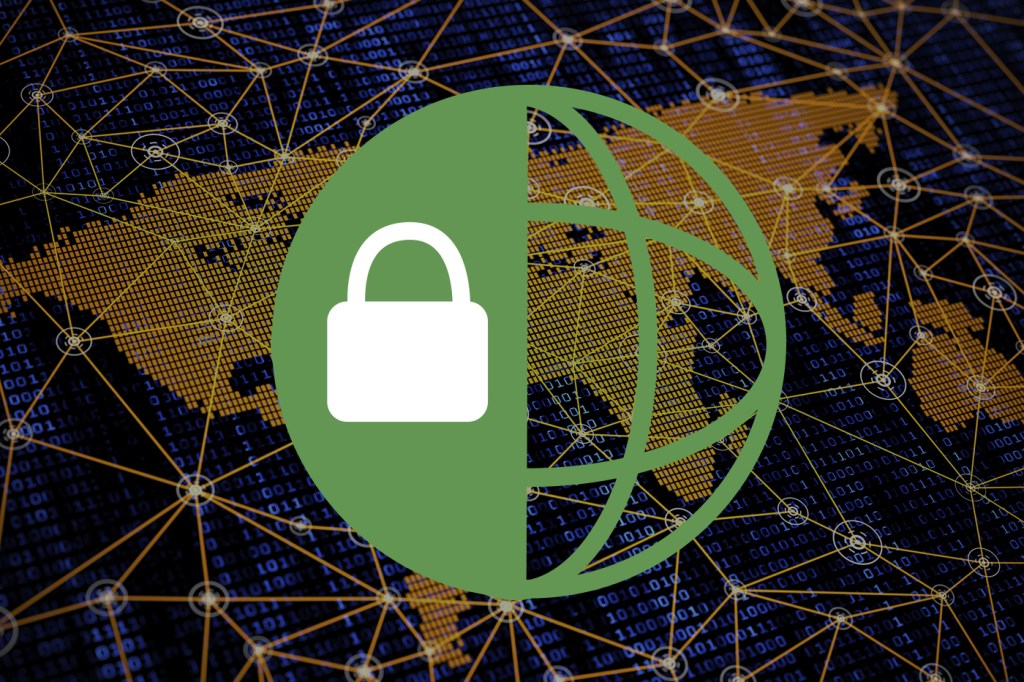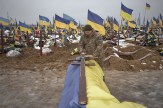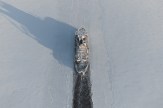3Qs: What’s the key to keeping the world safe?

The 11th International Security Forum will be held this week in Geneva, where 250 researchers, academics, civil servants, and military officials will convene to discuss the most pressing security issues of our time.  One attendee will be Denise Garcia, Sadeleer Research Faculty and associate professor of political science and international affairs at Northeastern University. Garcia is a vice chair of the International Committee for Robot Arms Control and the author of books and magazine articles on disarmament and the spread of arms, a topic that will figure prominently on the conference’s agenda. Here, she discusses the forum, the United States’ stockpile of nuclear weapons, and the biggest security threats facing the world today.
One attendee will be Denise Garcia, Sadeleer Research Faculty and associate professor of political science and international affairs at Northeastern University. Garcia is a vice chair of the International Committee for Robot Arms Control and the author of books and magazine articles on disarmament and the spread of arms, a topic that will figure prominently on the conference’s agenda. Here, she discusses the forum, the United States’ stockpile of nuclear weapons, and the biggest security threats facing the world today.
You’re currently running a diplomacy-based Dialogue of Civilizations program in Geneva for more than two dozen Northeastern students, who have been granted the opportunity to participate in the International Security Forum with you. What do you think the students will learn by attending the conference that they otherwise would not be able to learn through secondhand knowledge?
The ISF represents a unique opportunity for the students to interact with the world’s leading international security people all gathered in one place. The average age of the audience and high ranked speakers is 35, so my students will bring the youth, particularly because they will be allowed to participate in all the high-level events.
The theme of this year’s conference is “Global Disorder—Security in a World Disrupted.” In your view, what are the biggest security challenges facing the world today?
I have never been as concerned with the world as I am today. Such problems that challenge the security of each state in the international system and threaten human security are centered upon three areas of concern: One is underdevelopment and inequality around the world. For individuals living in such conditions, a lack of access to the means to become prosperous and to achieve a dignified life standard is usually aggravated by corruption, which is a cancer in most societies. The challenges posed by climate change, one of the gravest global governance problems affecting security, aggravates such trends of underdevelopment and have the potential to set minimal progress back even further.
The second area of concern is the gravity and magnitude of conflicts that affect several parts of the world now. Such conflicts have a profound effect on the stability of the international system due to two resulting problems of a global nature that are pressing today: terrorism and migration, especially from the Middle East and parts of Africa.
The third area of concern is the accumulation, proliferation, and misuse of existing conventional and nuclear weapons and the current development of artificial intelligence weapons systems that have the potential to completely transform the nature of war and future of humanity. Thousands of people are killed every year in homicides and in conflict, and the world nuclear powers still possess a combined total of 15,000 nuclear weapons. If that is not enough, some states are busy developing more weapons systems with more autonomy in lethality to be used in conflict and in law enforcement. These will pose urgent moral, legal, and ethical issues.
In his first major foreign policy address, President Barack Obama promised to ensure “America’s commitment to seek the peace and security of a world without nuclear weapons.” But newly declassified data shows that he has made fewer reductions to the United States’ stockpile of nuclear weapons than any president since the end of the Cold War. To what do you attribute the slow progress, and what can the next president do to speed up the disarmament process?
The slow progress is mostly due to the poor state of relations with Russia. The climate of suspicion between the two countries, the escalating war in Ukraine, the continuing annexation of Crimea by Russia, in blatant violation of international law and its rules on non-imperial annexation, are not conducive to further reductions in the nuclear arsenals. Unfortunately and erroneously, nuclear-possessing states cling to the idea of the status brought by these weapons. Somehow they are associated with power and prestige and resulting protection. However, deterrence is flawed and the reality is that nuclear weapons are a clunky relic of the 20th century with very little use for the much-needed global security of the 21st century, which has more to do with solving underdevelopment and fixing the climate.
The maintenance of the nuclear arsenals will cost the U.S. $1 trillion in the next three decades. I doubt the American public will buy into this absurdity. What is needed is the least diversion possible from the world’s economic resources to more weapons and to keep anachronistic weapons. What the world needs is to channel all the intellectual firepower of its humanity to solve the world’s most pressing problems. The United Nations Sustainable Development Goals offer an excellent map to do so.





